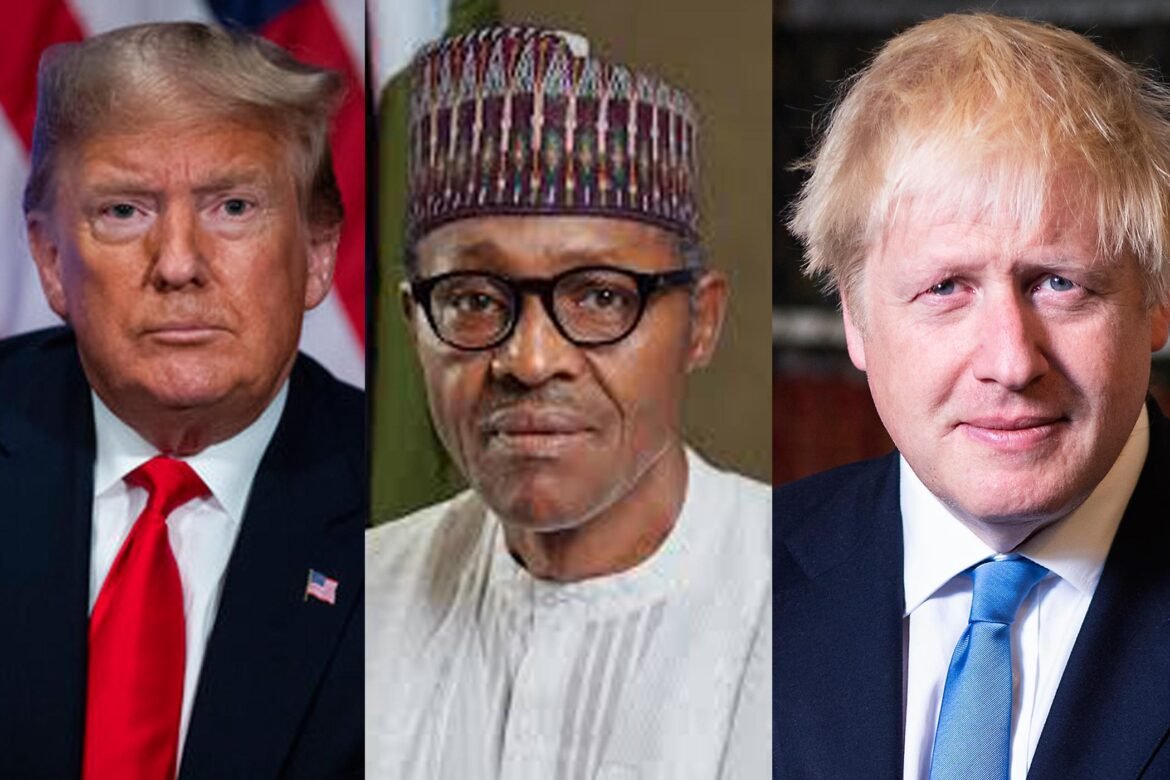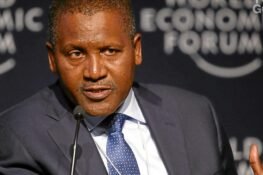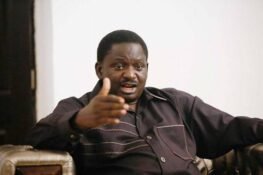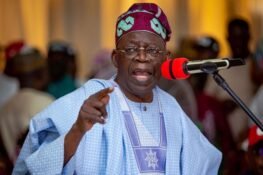Last week was filled with political drama in the United States, United Kingdom and Nigeria. In each country, the leader was made to face the consequences of the problems they created. United States’ Donald Trump; United Kingdom’s Boris Johnson; and Nigeria’s Muhammadu Buhari had been unrestrained, until they got a dose of feedback.
After an eventful week, these leaders are going into the holidays deep in thought about their political lives, and the public pressure that is mounting around them.
By Christmas day, the US President is all but sure to fill the unenviable position as only the fourth impeached American president, when the House of Representatives approves the two articles on abuse of power and obstruction of congress.
President Trump is an unusual leader, a Manchurian. He has fought his opponents like a mad buck since day one and failed to learn from mistakes. Not many expect Donald Trump to be fully impeached since the US Senate Majority Leader, Mr. Mitch McConnell, has already declared he would fully collaborate with Trump during the trial. Trump may remain in power, but he will go into the dark books of history.
In another perspective, McConnell’s statement reveals how the US system of democratic governance is afflicted. Picking the party over the nation was one of the greatest fears of the first US President, George Washington.
As the week wrapped up, President Trump and most Americans accepted that although the President would be impeached, he will not likely be removed, and his date is with the American people in November, 2020, during the election
In his farewell speech, President Washington was worried that partisanship can lead to division and tyranny, remarking, “The alternate domination of one faction over another, sharpened by the spirit of revenge, natural to party dissension, which in different ages and countries has perpetrated the most horrid enormities, is itself a frightful despotism.”
President Trump is a politician lacking morality, class or ideology, through whom many uneducated and poor white Americans nurture the hope for a glorious past. Most educated Americans know that their nation is degenerating under Trump, but the nation is sharply divided along party lines. To say the least, America is at a crossroads.
In the United Kingdom, the crossroads has just been crossed unto the uncertain road. Prime Minister Boris Johnson had a resounding victory to deal with the beast named Brexit, the UK’s exit from the European Union, which had consumed two of his predecessors.
Although he won the election, this victory will make or break his political career. A lot of deception has surrounded the promises of Brexit, some fueled by Johnson and friends. With a majority of votes cast for the Prime Minister’s Conservative Party, the rubber now meets the road?
Theory is over; reality is in. Everything rides on what kind of deal Johnson is able to extract from Europe. If he continues to pursue the hard line, the UK may experience a mass movement of companies to European capitals – and pain, instead of joy. And the wrath of the people is certain. If Brexit creates economic hardship, Johnson is toast.
At least, the Prime Minister has his future in his hands, and solid is the support of his people at the moment. For that, he can consider the week successful, as he prepares to face the biggest storm facing Britain in a generation, including the possible independence of Scotland.
For the Nigerian leader, President Muhammadu Buhari, as the administration and his character came under the microscope, he could not deliver a coherent response. The former military leader appears to be losing support and control, while raising concerns that he is resorting to repression in order to do something evil – so much that even his wife, Aisha, is lashing out against administration officials.
Notably, Nigerians are complaining that their country is gradually sliding towards intolerance, tribalism, nepotism, increasing economic hardship and authoritarian governance.
Last week was a good week for Nigeria. It was a week of re-awakening and reassurance that Nigerians, at least some, have learned to sleep with one eye open. It was good for democracy
In the media, sharp comparisons are being drawn between the ill-fated military regime that the President supervised between 1983 and 1985. At that time, freedom of speech was assaulted, critics were jailed and the security body was given unprecedented powers to crack down on the opposition.
It was Major General Buhari who passed the Protection Against False Accusations Decree in 1984, a law that was used to suppress dissenting speech. The factor was eventually used by another general, Ibrahim Babangida, to grab power.
Having gone through that experience with Buhari, many Nigerians have always been wary and suspicious of him as a politician. Not surprisingly, it was this background that led one of the most independent newspapers, Punch Newspapers Limited, to land a punch that has still got Aso Rock reeling.
Living up to its progressive leaning, the paper announced in an editorial on December 11, 2019, that it had decided that the formal title of Major General suited Buhari better than that of a democratic president.
The Punch posited that the Buhari administration had disregarded the rule of law in the re-arrest and detention of investigative journalist and activist, Omoyele Sowore, on treason charges, as well as the “vigorously pressing for anti-hate speech laws to restrict the social media.”
In that editorial, the newspaper alleged violation of rights under the administration and presented the behavior of President Buhari as that of an autocrat, rather than a democrat.
The newspaper noted that the nation has faced “assaults on the courts, disobedience of court orders and arbitrary detention of citizens reflect its true character of the martial culture,” reminding us Mr. Buhari ran a “ham-fisted military junta in 1984/85 and old habits obviously run deep.”
The Presidency instantly realized how troublesome the scathing editorial could become and issued swift counter-punches, which, instead of landing, only raised galvanized a national debate.
The First Lady did not help matters by granting press interviews within the same news window, in which she alleged a family member of the President issue unauthorized executive orders, in an attempt to dissociate her husband from the root causes of the worsening loss of confidence.
As the week wrapped up, President Trump and most Americans accepted that although the President would be impeached, he will not likely be removed, and his date is with the American people in November, 2020, during the election.
Prime Minister Boris Johnson ended it with an enormous mandate to make or break the United Kingdom. The people decided it was better to go with the devil they know and heaped all problems on one man, their Prime Minister.
But in Nigeria, the cloud of opposition and suspicion is expected to get broader and deeper.
President Trump is a politician lacking morality, class or ideology, through whom many uneducated and poor white Americans nurture the hope for a glorious past. Most educated Americans know that their nation is degenerating under Trump, but the nation is sharply divided along party lines. To say the least, America is at a crossroads
As the controversy on the rule of law dragged on, Buhari has maintained his usual total silence. In more than four years, he has only had one open engagement with the press. The only one who knows his mind is Buhari himself. The nation is left to speculate.
Some expect the President to unleash a strategic onslaught against his opponents in an attempt clear the path for a yet unknown agenda, using such instruments as the security agencies, repressive laws and the EFCC – an arm of the police devoted to fighting financial crimes.
Just the other day, a former governor and a sitting senator, Mr. Orji Kalu, was sentenced to 12 years of imprisonment for a 12-year-old corruption case, after he had spent money on Buhari’s own presidential campaign. There is a narrative out there that many more political bigwigs would be dealt with similarly.
Nigerians have to be happy when corrupt politicians and public officials are brought to book for doing something wrong.
However, selective and political use of the EFCC is not uncommon. This is why Nigerians are right to ask if there are undercurrents to the Orji Kalu sentencing.
Last week was a good week for Nigeria. It was a week of re-awakening and reassurance that Nigerians, at least some, have learned to sleep with one eye open. It was good for democracy.
This week, we need to remind ourselves that Nigeria has no time to flirt with any form of anti-democratic behavior. President Buhari swore on oath to respect the Constitution and the rule of law.
To these, we must hold him accountable and answerable. It will be the responsibility of every Nigerian to monitor and challenge the actions of their government.
There are enormous challenges facing the largest nation of black people.
The population is exploding, insecurity is growing, public infrastructure has deteriorated and ethnic conflicts are flaring over scarce resources. Nigerian needs to be stable and efficiently run, as a minimum condition to face these overwhelming challenges.







